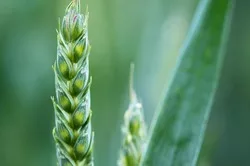
If many of us went to our garages or sheds, we would find “Roundup,” a popular lawn and garden weed killer sold by Monsanto. Since its commercial introduction in 1974, Roundup has become the most widely used weed killer in the United States, and possibly the world. In fact, Roundup is used in more than 160 countries internationally, with more than 1.4 billion pounds being applied to lawns and farms across the world annually.
The main ingredient in Roundup is an herbicide called “glyphosate.” Once glyphosate is applied to a plant, it prevents the plant from making certain proteins that are necessary for its continued growth. In order to allow for large-scale use of glyphosate on farms, crops have been genetically modified to be resistant to this herbicide.
After the introduction of genetically modified crops in the 1990s, the use of glyphosate increased fifteen-fold across the United States. Glyphosate use continues to increase each year across the United States. Specifically, Iowa, Illinois, Kansas, North Dakota, and southern Minnesota have some of the highest glyphosate usage in the United States.
Despite its frequent use, glyphosate has been linked to several serious health effects, such as non-Hodgkin lymphoma, cancer, and heart disease. Because of these risks, it is important to be aware of the many ways in which people can be exposed to glyphosate. Perhaps the most typical way in which people are exposed to this harmful herbicide is through inhalation during its application.
Glyphosate is a liquid that is typically applied by being sprayed onto the desired area. As such, people are typically exposed when they apply glyphosate or when they are in contact with plants recently sprayed with glyphosate. Typical exposure areas are crop fields, residential yards, golf courses, and playing fields. For that reason, farmers, gardeners, landscapers, and nursery workers are especially susceptible to the dangerous effects of glyphosate.
Links:
http://news.nationalgeographic.com/2015/04/150422-glyphosate-roundup-herbicide-weeds/

"*" indicates required fields